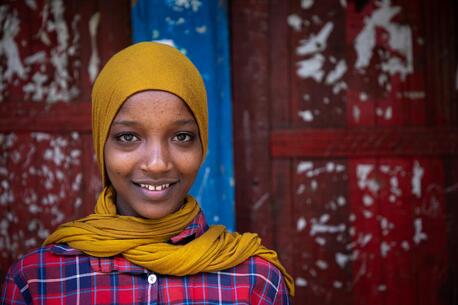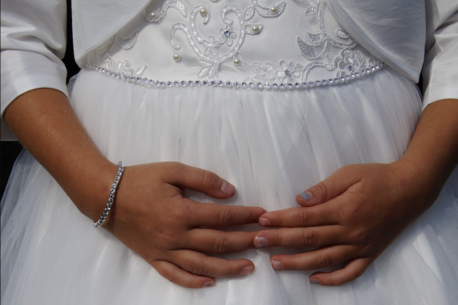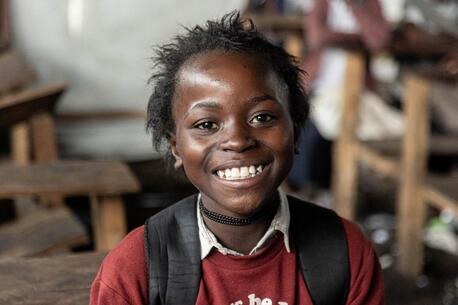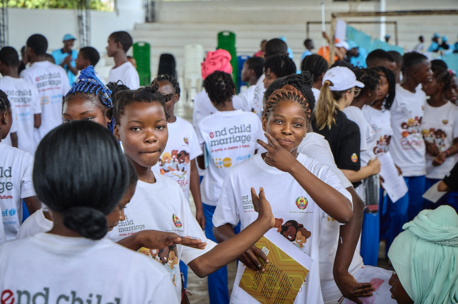
Girls' Rights Are Human Rights: The Fight to End Child Marriage
UNICEF and Zonta International are working together to prevent child marriage by tackling established practices and bolstering local systems to secure girls’ human rights.
No child deprived of her human rights can imagine a path to a brighter future without support to overcome obstacles and someone to light the way. Child marriage, the early or forced marriage of a child under the age of 18, robs too many of the world’s most vulnerable girls of the right to an education, health, economic security and, in short, gender equality.
The UNFPA-UNICEF Global Programme to End Child Marriage, launched by the United Nations Population Fund and UNICEF in 2016, promotes the rights of adolescent girls to avert marriage and pregnancy and empowers them to reach their full potential through education and alternative pathways. Zonta International, a UNICEF partner for more than 50 years, was the first private sector organization to contribute to the Global Programme and has contributed $4.7 million since 2018 to accelerate the large-scale, gender-transformative change required to end child marriage.
Child marriage rates are declining, though slowly
Nearly 640 million girls and women alive today were married as children, though child marriage has declined across most regions of the world in the past 25 years. Over the past decade, the global prevalence of child marriage dropped from 23 percent to 19 percent, according to the Global Programme’s 2022 annual report, “Sustaining the Gains in the Polycrisis Era."
Roughly half of the world’s child brides, 300 million girls, live in just 12 countries: Bangladesh, Burkina Faso, Ethiopia, Ghana, India, Mozambique, Nepal, Niger, Sierra Leone, Uganda, Yemen and Zambia. The Global Programme focuses on addressing the root causes of child marriage, like poverty and detrimental cultural norms and practices in each country, and then bolstering the systems that provide alternatives to child marriage, including education, protection and health care. (See "Ten Reasons to Invest in the UNFPA-UNICEF Global Programme to End Child Marriage").
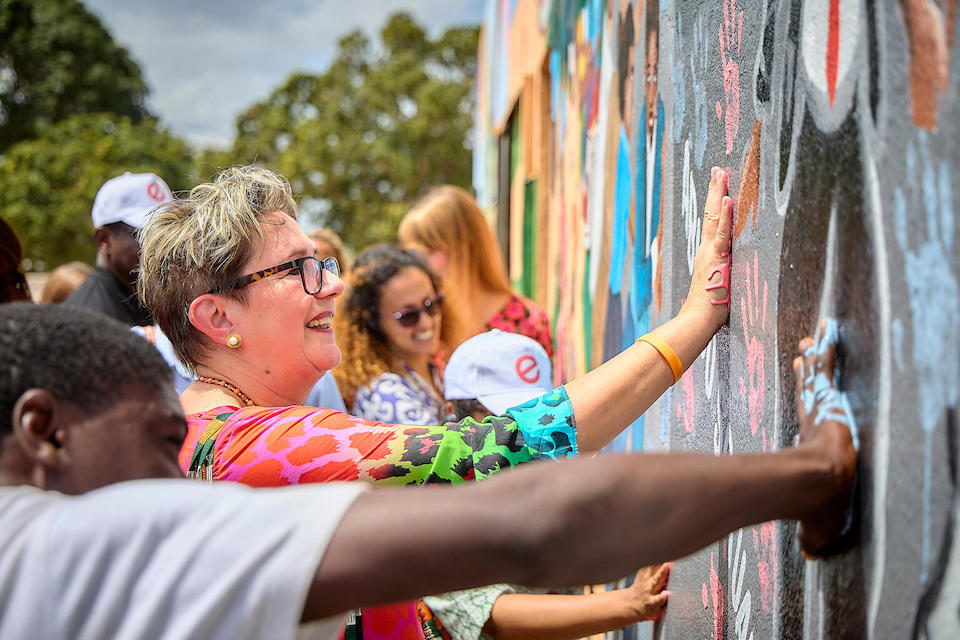
Accelerating the pace of child marriage eradication
Results have been promising, though some program gains have been negated by the global polycrisis. That concurrence of ongoing and overlapping global conflicts, natural disasters and crises, such as COVID-19 and the war in Ukraine, has led to worsening conditions for girls vulnerable to early or forced marriage. The disruption and destruction caused by COVID-19 alone is estimated to create 10 million additional child brides over the next decade.
UN Sustainable Development Goal 5 calls for gender equality and the elimination of child marriage by 2030. To reach this goal, global progress will need to be 20 times faster than it has been over the past decade. If left to proceed at the current pace, ending the practice will take another 300 years. UNICEF, along with Zonta and other partners in the international community committed to achieving the 2030 goal, must accelerate efforts on multiple fronts to provide girls with education and economic alternatives to marrying young.
The Global Programme, in its second of three phases of implementation, is currently focused on accelerating that pace by enhancing investments in and support for both unmarried and married adolescent girls and engaging key actors (including empowering young people as agents of change) in the work to shift attitudes and norms against child marriage. 2022 Programme achievements include 6.3 million adolescent girls (ages 10-19) participating in life skills or sexuality education and more than 16 million community members, including adolescent boys and girls, engaging in meaningful community dialogues on child marriage, the rights of adolescent girls and gender equality.
An additional 4 million boys and men participated in group education or dialogues to address harmful gender norms. The participation of men and boys in the movement is key because lasting, gender-transformative change will only be secured when all members of society stand against child marriage. To that same end, the Global Programme engaged some 825,000 traditional and religious leaders and other community influencers in consensus-building discussions on ending child marriage.
Changing attitudes at the local level
Zonta International, a global service and advocacy organization, operates through almost 1,100 clubs to drive local and systemic change that will build a better world for women and girls. Of the organization’s commitment to ending child marriage, Ute Scholz, President of Zonta International, says, “Child marriage is a violation of a girl’s human rights. Zonta International and our clubs in 62 countries are working to ensure every girl has the right to say no to early marriage, stay in school and realize her full potential. We will not stop until we eliminate this human rights violation in every country around the world.”
Zonta’s regional strategy includes partnering with UNICEF to raise awareness and redress the existence of child marriage in the U.S., where the practice remained legal in all 50 states until 2017. Without a federal law prohibiting child marriage, each U.S. state must pass its own legislation. Today, just 10 states have enacted laws prohibiting marriage under the age of 18. Among other actions, the Zonta USA Caucus and UNICEF partnership produced a yearlong public service announcement billboard campaign to help stop child marriages in the remaining 40 states.
Zonta’s investment and advocacy in the global fight to eradicate child marriage complements its decades-long partnership with UNICEF to supply adolescents, especially girls, with services, information and safe, inclusive environments. This includes empowering girls to help build climate resilience in their communities.
Improving water and sanitation helps keep girls in school
In Madagascar, Zonta has enabled programming to allow more than 20,000 girls to learn in safety. As most regions in the country are suffering from water scarcity due to consecutive years of below-average rainfall, access to safe water and sanitation are threatened. Zonta’s support has helped UNICEF ameliorate these conditions through a UNICEF project to improve WASH programs at five pilot schools, with the participation of 1,315 female students. Teachers and students have also received training on water conservation, environmental education and menstrual health and hygiene. And in Peru, 157,000 students have benefited from the Zonta-supported violence prevention strategy (PREVI) in schools, and 49 health centers received tools to collaborate with schools on protecting students’ mental health.
Every girl deserves to enjoy her childhood and make decisions about her own future without the threat of child marriage. The fight to end the practice will take a holistic approach to dismantle entrenched norms and behaviors, attack the root causes of early and forced marriage and redirect resources to establish alternative avenues to autonomy for girls and women. UNICEF is immensely grateful to private sector partners like Zonta that are accelerating and scaling up critical interventions to stop child marriage.
Learn more about UNICEF's partnership with Zonta International.
